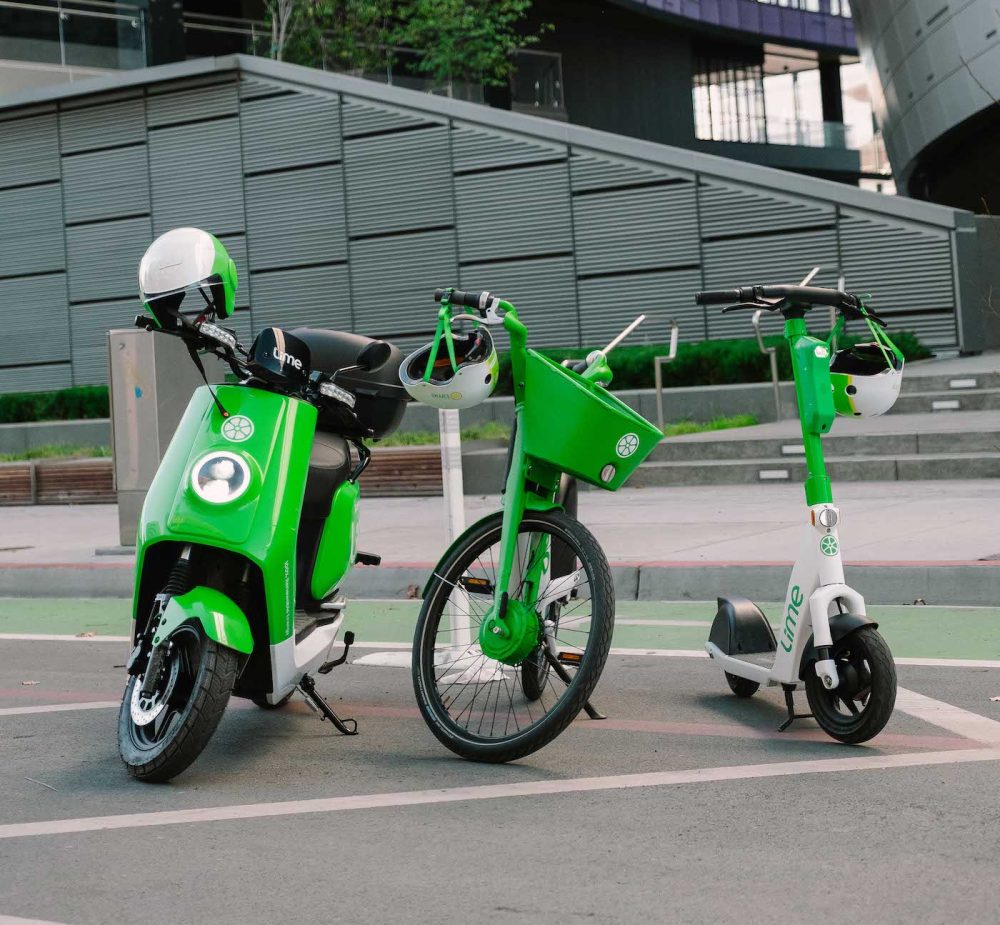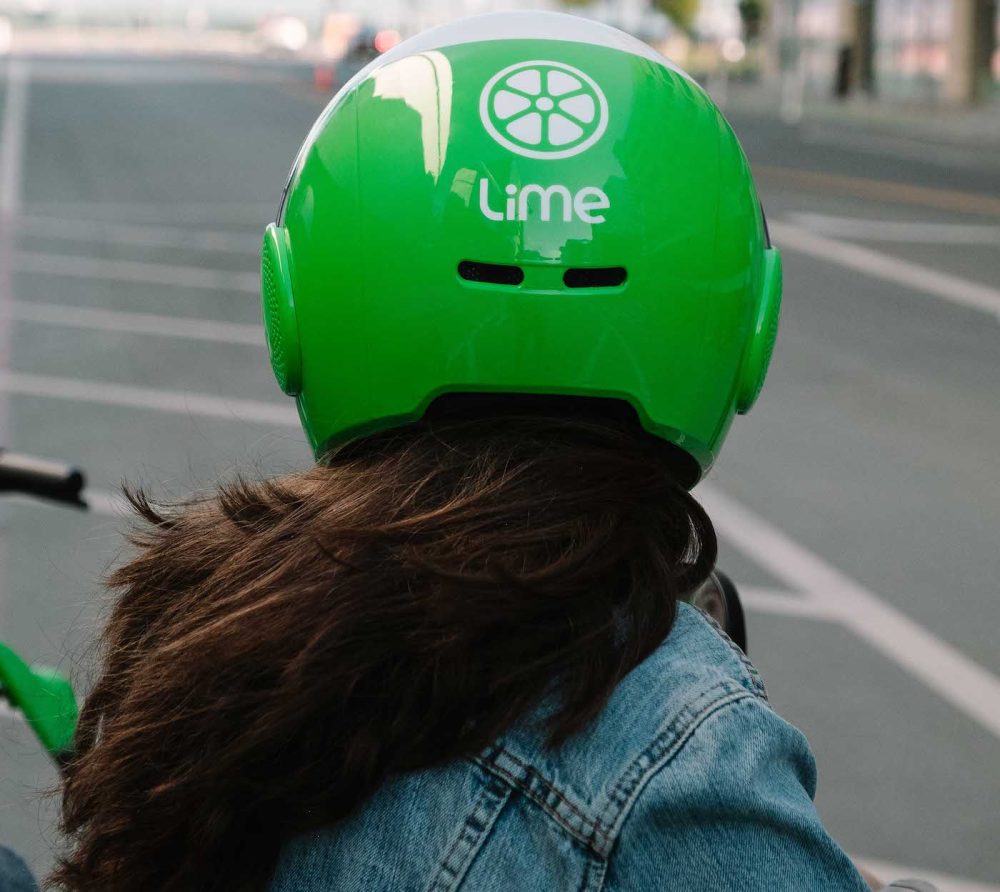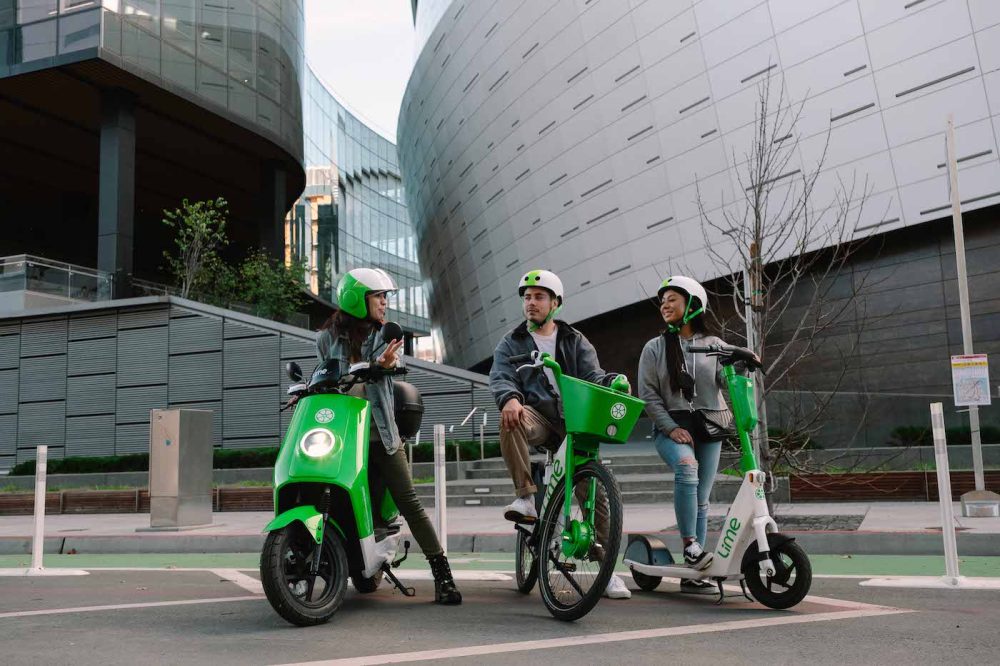
While you may normally associate Lime with around half of the standing (and often sideways laying) electric scooters scattered around your local street corner, the company is now adding larger vehicles to the mix. New seated electric scooters from NIU will make their way into Lime’s rental fleet later this spring.
The seated electric scooters, often referred to as mopeds, can travel at speeds of up to 28 mph (45 km/h).
Considerably faster than Lime’s electric scooters and bicycles, the new seated electric scooters are better positioned for riders traveling longer distances on higher-speed urban roads.
These will also be the first Lime vehicles that are intended to carry two riders – not that the one-rider limit seems to have stopped countless riders from doubling up on the company’s standing electric scooters.
The new electric mopeds can be rented just like the existing electric scooters and e-bikes in Lime’s fleet. Users are able to locate the scooters via the Lime app and rent the vehicles by the minute.

As CEO of Lime Wayne Ting explained in a statement provided to Electrek:
The addition of electric mopeds to our fleet of e-bikes and e-scooters is another major step in our goal of ensuring access to affordable, carbon-free shared transportation in cities around the world. As the first micromobility provider to offer three vehicle types on one platform, we’re excited to help cities and riders get moving again with safe, sustainable, and socially distanced transportation to serve any urban journey. Lime now offers a ride for any trip, at any time, in nearly any major city in the world, furthering our mission to foster people-first cities.
The scooters will each feature a storage case holding two helmets. In order to start the scooter, riders must upload a selfie showing that they are wearing a helmet, and riders are required to wear a helmet throughout the entire ride. Lime is even employing “a first-of-its-kind technology for shared e-mopeds: an infrared sensor in each helmet case to identify if a rider has removed the helmet from the case for use.”
It is unclear how Lime will deal with riders wishing to use their own helmet. I’m guessing my carbon fiber motorcycle helmet is a bit safer than Lime’s scooter helmet, so I hope Lime won’t make me use theirs.

In another ode to safety, Lime consulted with the Motorcycle Safety Foundation (MSF) to develop a rider training e-course and test that must be completed before riders can use the new seated electric scooters.
The MSF is one of the leading organizations whose testing materials are used in licensing new motorcycle riders in the US. In fact, I completed an MSF course to receive my own motorcycle license, and I’ve often recommended it to both e-bike and e-moped riders as a great safety resource and skill-building opportunity.
Lime is also offering free 45-minute in-person classes, space permitting, to train new riders on the electric scooters.
The company is starting slowly with the rollout, beginning its electric moped pilot in just Washington, D.C., and Paris, this spring. If all goes well, Lime will likely expand operations to other cities.

If the seated electric scooters look familiar, you may have seen them in the Revel fleet.
Revel is another shared micromobility company operating in the US and the first to enlist the NIU N-Sharing model of electric scooter.
Lime appears to be the latest US-based shared mobility operator to take advantage of NIU’s NHTSA homologation.
Electric mopeds and seated electric scooters haven’t caught on in the US to the same degree as they have in Europe, and NIU is one of the only providers of street legal options in the US.
Electrek‘s take
Well, Revel likely won’t be pleased, but I think this is good news.
I’ve long touted seated electric scooters as an important part of the micromobility landscape, and the US is overdue for the coming wave of e-scooters.
Not only are these faster and more convenient than standing electric scooters, I’d wager they are safer too – as long as ridden responsibly.
The safety materials that Lime developed are a step in the right direction, but time will tell whether they are actually effective or rather just a digital hurdle to new riders to frustratingly climb over and forget about.
As long as riders can use these vehicles responsibly, I’m a big proponent. The storage space between your legs is one of the biggest benefits of this type of vehicle, and it’s how I carry many things on my own NIU scooter. But we can’t forget that deaths are already piling up in the US from irresponsible riders on seated electric scooters. Thus proper riding and a zero tolerance policy for infractions are key to keeping riders and the public safe.
Subscribe to Electrek on YouTube for exclusive videos and subscribe to the podcast.
Author: Micah Toll
Source: Electrek



